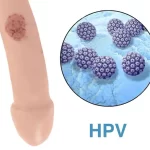Colorectal Cancer Rates Surging in Youth, Study Finds
Did you know that colorectal cancer rates surging in youth? While colorectal cancer predominantly affects individuals aged 50 and older, recent findings indicate a concerning trend of rising incidences among younger demographics.
According to a newly published study spanning from 1999 to 2020, there has been a staggering 500% increase in colorectal cancer cases among children aged 10 to 14, a 333% surge among teenagers aged 15 to 19, and a notable 185% rise among young adults aged 20 to 24.
These alarming statistics will be presented on May 20 at Digestive Disease Week 2024 in Washington, DC, shedding light on the shifting landscape of colorectal cancer demographics.
The Surge of Colon Cancer in Younger Demographics
Researchers delved into the Centers for Disease Control Wonder Database to scrutinize trends in colorectal cancer rates among individuals aged 10 to 44 from 1999 to 2020.
Their analysis revealed notable shifts in colorectal cancer incidence, illustrated by the following findings:
- Among children aged 10 to 14, rates climbed from 0.1 per 100,000 in 1999 to 0.6 per 100,000 in 2020.
- Teenagers aged 15 to 19 witnessed an escalation from 0.3 per 100,000 in 1999 to 1.3 per 100,000 in 2020.
- Young adults aged 20 to 24 experienced an increase from 0.7 per 100,000 in 1999 to 2 per 100,000 in 2020.
Furthermore, researchers observed a 71% rise in colorectal cancer cases among adults aged 30 to 34 and a 58% increase among those aged 35 to 39 over the same period.
Lead researcher Islam Mohamed, MD, an internal medicine resident physician at the University of Missouri-Kansas City, emphasized, “Colorectal cancer is no longer considered just a disease of the elderly population,” in a news release. He stressed the importance of public awareness regarding the signs and symptoms of colorectal cancer.
The Rising Trend of Colorectal Cancer in Young Adults: Understanding Potential Causes
While a family history of colorectal cancer remains an unalterable risk factor, recent studies underscore various modifiable factors that could contribute to the escalating incidence rates. These include:
- Diet: Dietary habits play a crucial role, with consumption patterns of processed foods and red meat potentially increasing the risk of colorectal cancer.
- Physical Activity: Sedentary lifestyles devoid of regular physical activity may exacerbate the risk.
- Obesity: Increasing rates of obesity, particularly prevalent in the United States, are closely linked to higher incidences of colorectal cancer.
- Sleep Patterns: Poor sleep quality and duration have emerged as potential risk factors, although further research is warranted.
- Alcohol and Tobacco Use: These habits, known carcinogens, can significantly elevate the risk of developing colorectal cancer.
Dr. Anton Bilchik, a surgical oncologist at Providence Saint John’s Cancer Institute, emphasizes the importance of recognizing that the onset of colon cancer can occur at a young age.
He advocates for proactive measures such as maintaining regular physical activity and adopting healthier dietary choices, such as reducing processed food intake and limiting red meat consumption.
Dr. Jacqueline Casillas, a pediatric hematologist/oncologist, points out the escalating rates of obesity in the U.S. and the prevalence of diets rich in processed foods and fats.
These dietary patterns, juxtaposed with inadequate consumption of fruits, vegetables, and fiber, may contribute to the observed rise in colorectal cancer cases among young individuals.
Understanding and addressing these modifiable risk factors is imperative in curbing the incidence of colorectal cancer among the younger population. Efforts toward promoting healthier lifestyles and dietary habits may prove pivotal in stemming this concerning trend.
Expanding the Spectrum of Potential Causes for Colon Cancer
Dr. Bilchik highlights an intriguing link between antibiotic usage and colorectal cancer incidence in younger individuals.
He underscores the intricate balance of the microbiome, consisting of trillions of bacteria crucial for immune function and cancer prevention. The indiscriminate use of antibiotics at a young age could potentially disrupt this delicate balance, predisposing individuals to colorectal cancer later in life.
Moreover, Dr. Bilchik emphasizes the importance of adopting anti-inflammatory practices, as inflammation has been closely associated with colorectal cancer development.
He advocates for dietary and lifestyle choices that mitigate inflammation, such as consuming fresh, balanced meals and engaging in regular physical activity from a young age.
Dr. Casillas underscores the relevance of established risk factors for cancer, even in younger demographics. While alcohol consumption might not be prevalent among children, teenagers may expose themselves to this risk factor.
She stresses the need for comprehensive cancer prevention efforts addressing alcohol and tobacco use, obesity, and the importance of maintaining a healthy, active lifestyle to mitigate cancer risk at an early age.
SEE ALSO: Benefits of Drinking Warm Water on empty stomach
Dr. Bilchik offers a balanced perspective on the study’s findings, cautioning against overly alarming interpretations. While the reported percentage increases in colorectal cancer cases among young people may sound significant, Dr. Bilchik emphasizes the importance of considering the absolute numbers.
The actual incidence rates, when translated, remain relatively low, with only a few cases per million individuals. Thus, while the trend is noteworthy, colorectal cancer remains uncommon among very young individuals.
Dr. Casillas underscores the study’s significance in laying the groundwork for future research endeavors. Understanding the factors contributing to the observed increase in colorectal cancer cases among young people is crucial for devising strategies for early diagnosis and risk mitigation.
Continued exploration of these factors within the research community will be essential in unraveling the underlying causes and devising effective interventions.
Related posts:

A graduate of Computer Science and Information Management Technology. Diploma – Caregiving, Certificates – Dementia and Diabetes Awareness and Management. A researcher, blogger, songwriter, singer and acoustic guitarist. Born in an environment where natural talents such as healing are imparted at our natural birth. This natural talents of healing is the result of our genetic inheritance and the training from family environment.























